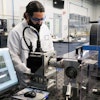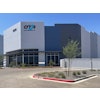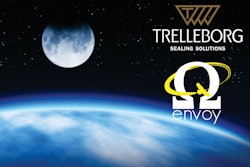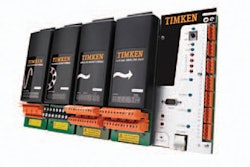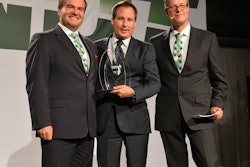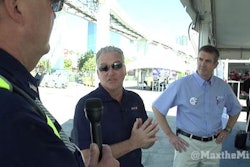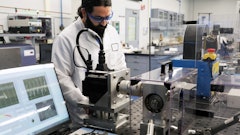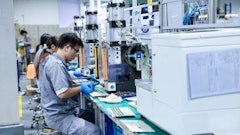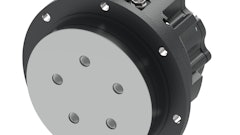U.S.-based Yokohama Tire Corporation (YTC) is joining with its Japanese parent, The Yokohama Rubber Co., Ltd. (YRC), to utilize its strength in technologies to protect the environment. This environmental mandate, part of the company’s “Grand Design 100” (GD100) Plan, is designed to have Yokohama harmonize its company-wide operations in everything from manufacturing to product design. The GD100 Plan coincides with the organization’s 100th anniversary in 2017 and outlines how YRC will reduce the environmental impact made by every one of its products, including passenger and commercial tires as well as adhesives, sealants and golf accessories.
“YTC has developed a ‘Green Initiative’ to cover our U.S. operations and reduce the company’s environmental footprint in every way possible, which is consistent with our global initiative,” says Yasushi Tanaka, Yokohama president and CEO. “The new umbrella name for our global environmental philosophy is ‘BluEarth,’ which includes products that incorporate our groundbreaking orange oil technology such as the all-new AVID Ascend. BluEarth is our product engineering philosophy aimed at producing tires that are environmentally-, socially- and human-friendly.”
Yokohama’s environmental efforts were recognized at the 2011 Tire Technology Expo in Cologne, Germany, where the company was honored with the Environmental Achievement of the Year award. “Receiving the award was extremely gratifying because it validates our commitment to protect Earth,” says Tanaka.
Yokohama currently has zero-emissions of waste at all of its eight production sites in Japan, as well as at its Philippines product plant and two factories in China, and will expand this approach to other facilities globally. It has achieved an 8% reduction in CO2 emissions, exceeding targets set by the Kyoto Protocol on climate change, and has been awarded the highest possible environmental rating by the Development Bank of Japan.
In the United States and worldwide, Yokohama’s manufacturing plants are ISO 14001-certified, which is an international specification of environmental management system that holds organizations to stringent environmental principles and audits.
Development of eco-friendly products is a significant GD100 objective. Yokohama’s environmentally-friendly tires include the AVID Ascend, which uses the same orange oil technology first employed in the dB Super E-spec, a consumer passenger tire which launched in the United States in 2007. Yokohama’s orange oil technology is highlighted in a special two-year exhibit at the Museum of Science, Boston.
Yokohama additionally has a “green” racing tire – the ADVAN ENV-R2, which like the Ascend, contains orange oil. This compound allows for more natural and sustainable materials to be used, while increasing the grip capability in natural rubber and maintaining the high-performance levels of previous race slick compounds. The ENV-R2, an updated version of the ADVAN ENV-R1, which debuted at Sebring in 2009, is the Official Spec Tire of the 2012 IMSA GT3 Cup Challenge by Yokohama and GTC Class of the ALMS (American Le Mans Series). The ADVAN ENV-R2 is the first – and only – environmentally-friendly tire used in a racing series.
In addition, Yokohama is producing truck tires that will last longer and are more fuel efficient, launching the 709ZL drive tire to go with its 101ZL, 103ZR, 501ZA and 703ZL commercial tires. The five tires make up Yokohama’s Zenvironment lineup of eco-friendly truck tires.
“The Zenvironment tire line incorporates optimum tread designs, compounds and casing design to create a tire that has longer first tread life, longer casing life and low rolling resistance,” says Rick Phillips, Yokohama’s director of commercial sales. “These features result in reduced material consumption and pollution and contribute to the health of our environment.”
Additionally, the 101ZL, 103ZR and 703ZL have been added to the U.S. Environmental Protection Agency’s (EPA) SmartWay list of verified technologies for tires. This brings the number to seven of Yokohama products that are recognized as SmartWay “low rolling resistance tires.” They have met the SmartWay program’s stringent verified low rolling resistance criteria because they run cooler and help reduce fuel consumption, which cuts costs and benefits the environment.
The EPA has designated Yokohama’s RY617 steer and all-position tire as the benchmark casing to establish a SmartWay verification program for retreaded tires used on Class 8 line-haul trucks. “This means all retread solutions will be measured against a target number for rolling resistance on our casing,” says Phillips. “This is an important and necessary initiative by the EPA to incorporate retreading into the SmartWay program. It has been instrumental in helping the trucking industry become more fuel efficient and we are very glad to have our casing represent the benchmark.”
In 2009, Yokohama was also named a Partner in the SmartWay program, with status in the “shippers” category, meaning the company ships more than 50% of its products on SmartWay-designated transport carriers.
Yokohama has also launched “Forever Forest,” a long-term global initiative that is part of YRC’s environmental preservation activities and is designed to absorb carbon dioxide from the atmosphere. The project initially broke ground in 2007 at YRC’s Hiratsuka Factory in Japan, where around 30,000 trees were planted, and YRC will ultimately plant 500,000 trees, creating nearly 25 acres of new forest.
In 2010, Forever Forest planting at Yokohama’s U.S. headquarters in Fullerton, CA inaugurated, with Phase II having taken place in December 2011. In 2009, a similar planting was held at YTC’s Salem, VA facility where approximately 2,000 trees were planted and where existing forested area will be expanded by nearly a full acre by 2014. Phase III was completed at Salem in April 2012 when an additional 6,800 seedlings were planted. Sites for more tree-planting will be six other Japanese facilities and 10 overseas affiliates. To date, over 256,000 trees have been planted.


